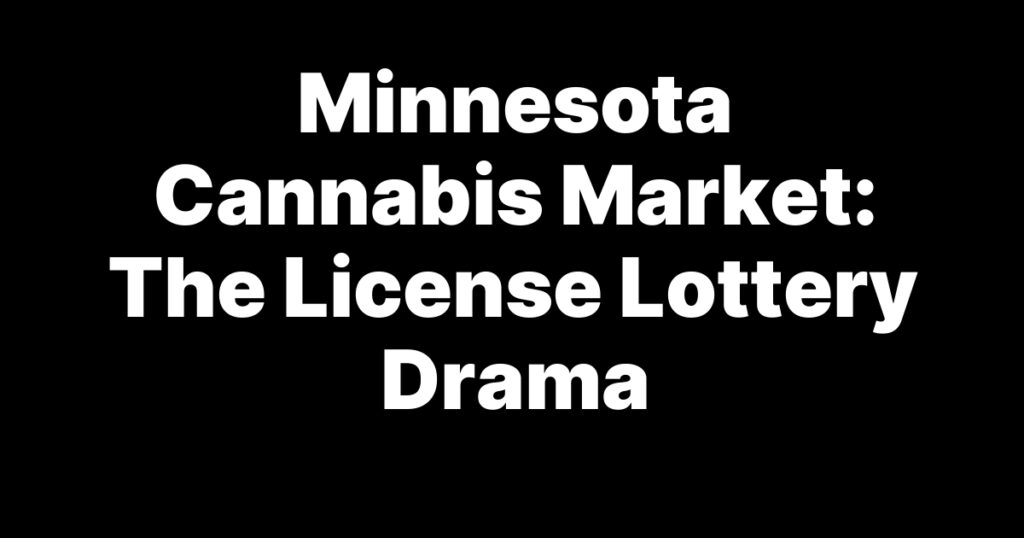The Long Road to Cannabis Entrepreneurship
Minnesota’s path to recreational cannabis isn’t just a regulatory process—it’s a nuanced story of social equity, legal challenges, and systemic transformation. What began as a progressive attempt to create a fair cannabis market has become a cautionary tale of bureaucratic complexity.
The Social Equity Vision
The state legislature designed the cannabis licensing program with a revolutionary goal: not just legalization, but repair. Social equity licenses were meant to provide opportunities to communities historically damaged by marijuana prohibition—particularly communities of color disproportionately impacted by past drug enforcement.
Who Qualifies as a Social Equity Applicant?
- Residents from high-poverty neighborhoods
- Veterans
- Individuals with prior marijuana-related convictions
- Community members directly affected by past drug enforcement
The License Lottery Drama
By the Numbers
- Total Applications: 1,817
- Rejected Applications: 1,169 (approximately 64%)
- Preapproval Licenses Planned: 182
The Alleged “Straw Applicant” Scheme
The Office of Cannabis Management uncovered what they believe was a calculated attempt to manipulate the lottery:
- Hundreds of applications used a single email domain (mncanna.org)
- Many applicants allegedly agreed to sell potential licenses for $100,000
- Connections discovered to an Iowa cannabis operator, Tate Kapple
Legal Landscape
Court Intervention
Ramsey County Judge Stephen Smith’s decision wasn’t just a pause—it was a statement about regulatory integrity. By issuing a stay, the judge signaled that the licensing process needed thorough review.
Key Legal Challenges
- Arbitrary application rejections
- Lack of transparent evaluation criteria
- Potential systemic bias in the selection process
Market Launch Projections
Realistic Timeline
- Regulatory Rulemaking: Early 2025
- Potential Dispensary Opening: Late Q3 or Q4 2025
- Earliest Cultivation Permits: Uncertain
Entrepreneur Survival Guide
Navigating Uncertainty
- Document Everything
- Understand Social Equity Criteria Thoroughly
- Prepare Comprehensive Business Plans
- Build Community Relationships
- Stay Legally Compliant
Broader Implications
This isn’t just about cannabis—it’s about:
- Economic opportunity
- Racial justice
- Regulatory innovation
- Community healing
Potential Positive Outcomes
- More rigorous, transparent licensing processes
- Enhanced opportunities for marginalized entrepreneurs
- Comprehensive market regulation
What Comes Next?
The cannabis market’s delay isn’t a defeat—it’s an evolution. Minnesota is carefully constructing a model that balances economic opportunity with social responsibility.
Pro Tip: Potential cannabis entrepreneurs should view this delay as an opportunity to strengthen their applications and understanding of the emerging market.
Keywords: Minnesota Cannabis Legalization, Social Equity Licensing, Cannabis Entrepreneurship, Regulatory Challenges
Disclaimer: Information current as of December 2024. Always consult official sources for the most up-to-date regulatory information.
